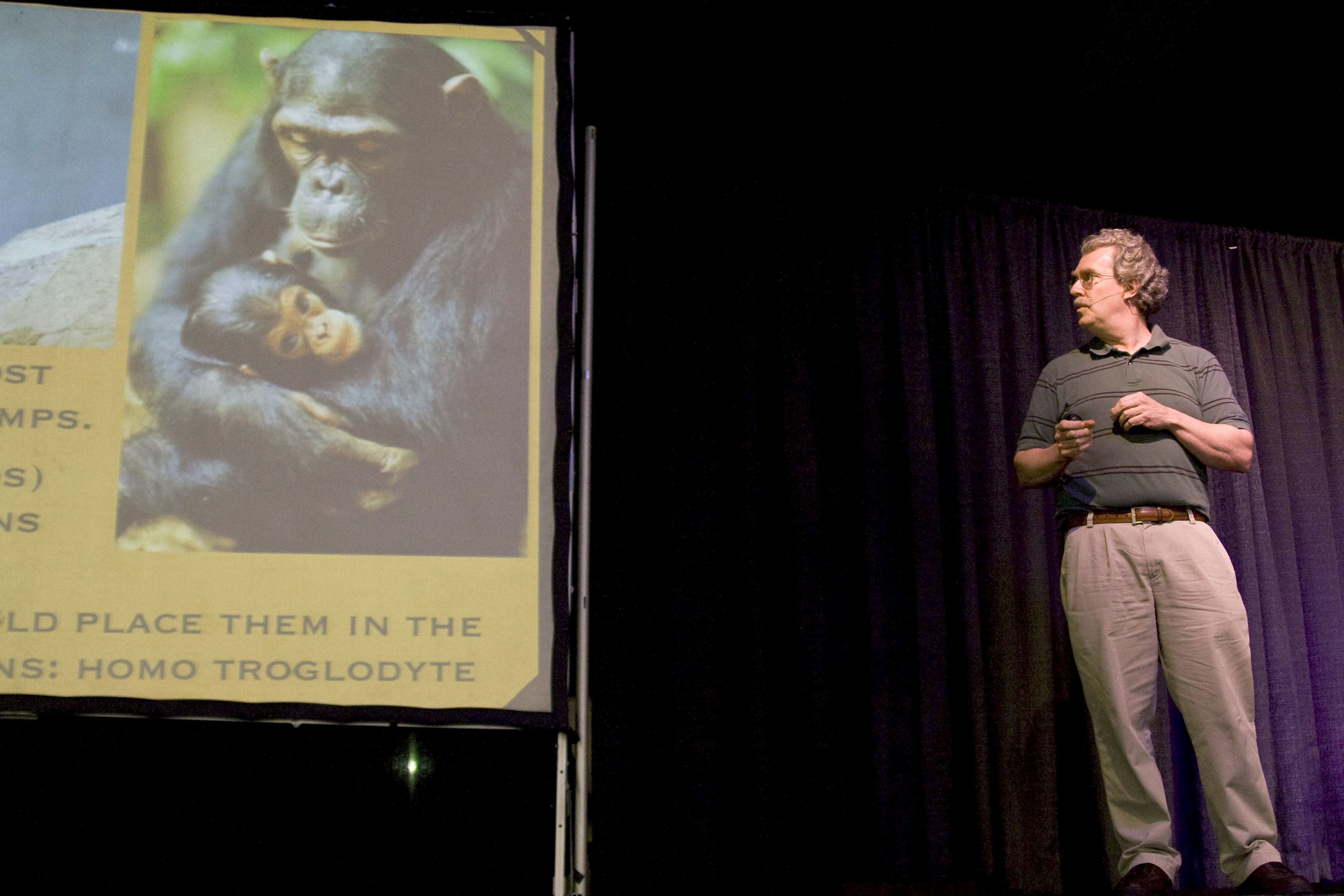Does agreement with Darwin produce a modern-day gnostic, or an open-minded Christian? That was a question at hand during Thursday night’s forum discussion “Can a Christian be a Darwinist?” at Sutherland Hall.
Speaker Karl Giberson, author of “Saving Darwin,” focused on the scientific evidence for evolution, including the fossil record, biogeography, genetics, and comparative anatomy. Another speaker, John West, author of “Darwin Day in America,” presented historical and societal arguments for Christians’ need to oppose the effects of Darwinism.
In his presentation, Giberson explored the incongruence of nature and theology, and said that “if we think of evolution as a creative force, then we have a way out of theological issues such as a flawed and evil nature.” The necessity of evil in nature, he claimed, makes more sense through an evolutionary worldview.
He also acknowledged that core values of theology are “problematic in the evolutionary framework,” and offered different perspectives on the image of God and humanity’s fallen nature, suggesting that these characteristics could have come about gradually and, therefore, are evident in other species.
John West presented the argument titled “Darwin, God, and the Return of Gnosticism.” West proposed that the “creative power of natural selection cannot explain the big changes in history,” and named a number of influential people who challenged the materialism of their day. He claimed that theistic evolutionists are similar to the Gnostics in the early Church, and urged Christians to imitate apostles John and Paul in protecting our core values.
West offered two challenging questions after introducing the experiments of a skeptical scientist, Douglas Axe: Is evolution really supported by evidence? And should we be free to debate this?
In his rebuttal, Giberson stated that West’s main sources were people who lived and died long before the impact of modern science occurred.
“Science has delivered these revelations to us,” he said. “While they might make mysteries where before we had clarity, we must wrestle with them.”
West defended the core foundations of Christianity that, he claims, theistic evolutionists have rejected in their attempt to compromise with Darwinian theories.
After the debate, Karl Giberson said that nature and theology are mysterious, and Christians “shouldn’t force things to fit our worldview.” West commended Biola for allowing both sides of the issue to be heard, and said he was able to successfully communicate his main points.
Junior John Muniz said he was enlightened by the debate and felt it gave more clarity and depth to evolutionary issues. Muniz did not totally agree with Giberson, though.
“If you don’t use Scripture to defend your position, what do you stand on as a Christian?” he said.
Anne Turner, an alumnus of Biola, believes that the debate’s main question was indeed answered.
“It is possible to be a Darwinist and a Christian. Absolutely,” she said.







